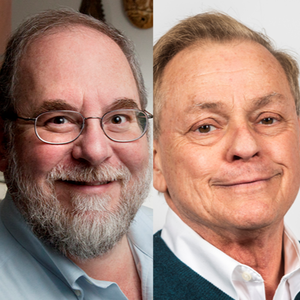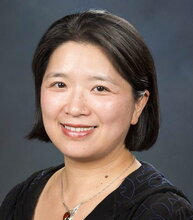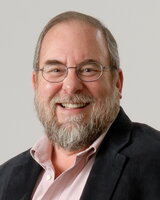Three University of Illinois Urbana-Champaign professors have been elected to the National Academy of Sciences.
Physics professor Chen-Yu Liu, biochemistry professor emeritus Steve Sligar and chemistry professor emeritus Ken Suslick are among 120 newly elected U.S. members and 24 international members in recognition of their distinguished and continuing achievements in original research.
Suslick, the Marvin T. Schmidt Professor of Chemistry Emeritus, has been a faculty member at the U. of I. since 1978. He works at the forefront of chemical sensing, having developed an artificial optoelectronic “nose” capable of detecting harmful substances in the air, such as poisonous gases, toxins and explosives. He is also a leading scientist on the chemical and physical effects of ultrasound, including sonochemistry and sonoluminescence. In addition to his academic research, Suslick has had significant entrepreneurial experience in the biomedical industry, and he is presently CEO of Iridescent Sensors Inc., a startup at EnterpriseWorks at the U. of I. Research Park.
Suslick has been honored with numerous awards, including the Sir George Stokes Medal from the Royal Society of Chemistry, the Helmholtz-Rayleigh Interdisciplinary Silver Medal from the Acoustical Society of America and the Hildebrand Award in the Chemistry of Liquids from the American Chemical Society. In 2018-2019, he was the George Eastman Professor at Balliol College, University of Oxford. He is a fellow of the American Chemical Society, the Materials Research Society, the Acoustical Society of America, the American Physical Society, the National Academy of Inventors, the Royal Society of Chemistry and the American Association for the Advancement of Science.
Sligar received his Ph.D. in physics from the University of Illinois in 1975. In 1982, he returned to Illinois from a professorship at Yale University and was named the I. C. Gunsalus Professor of Biochemistry. Currently, Sligar is the Maybelle Leland Swanlund Endowed Chair Emeritus, professor emeritus and research professor in biochemistry and chemistry. His research centers on understanding the structure and mechanistic function of metalloenzymes, membrane-bound receptors and transporters, as well as investigations in blood coagulation and amyloid proteins and their corresponding human disease states.
Sligar is a fellow of the Biophysical Society and the American Association for the Advancement of Science. His awards include a Fulbright research scholarship, a senior fellowship from the Japan Society for the Promotion of Science, a National Institutes of Health Merit Award and the Bert L. and Kuggie Vallee Visiting Professorship in Inorganic Chemistry at Oxford University, where he was a fellow of Queens College. He is also a Jerome Karle Nobel Laureate World Innovation Foundation Fellow.
Liu came to Illinois from Indiana University in 2022 through the U. of I. distinguished faculty recruitment program. Her research focuses on symmetry tests and fundamental neutron physics to understand matter creation and nucleosynthesis in the early universe. She specializes in experimental tools using ultra-cold neutrons and holds the record for the most precise measurement of the neutron lifetime.
Throughout her career, Liu has received many honors, including a Sloan Research Fellowship and an American Physical Society Fellowship. She was a Rosen Scholar at Los Alamos National Laboratory and won the National Institute of Standards and Technology precision measurement grants twice — in 2016 and 2022 — to improve neutron lifetime measurements. In 2018, she won a National Science Foundation major research instrumentation grant to construct a room-temperature apparatus to improve the neutron electric dipole moment measurement.
The National Academy of Sciences was formed in 1863 under a congressional charter signed by President Abraham Lincoln. It recognizes achievement in science by election to membership, and — with the National Academy of Engineering and the National Academy of Medicine — provides science, engineering and health policy advice to the federal government and other organizations.



